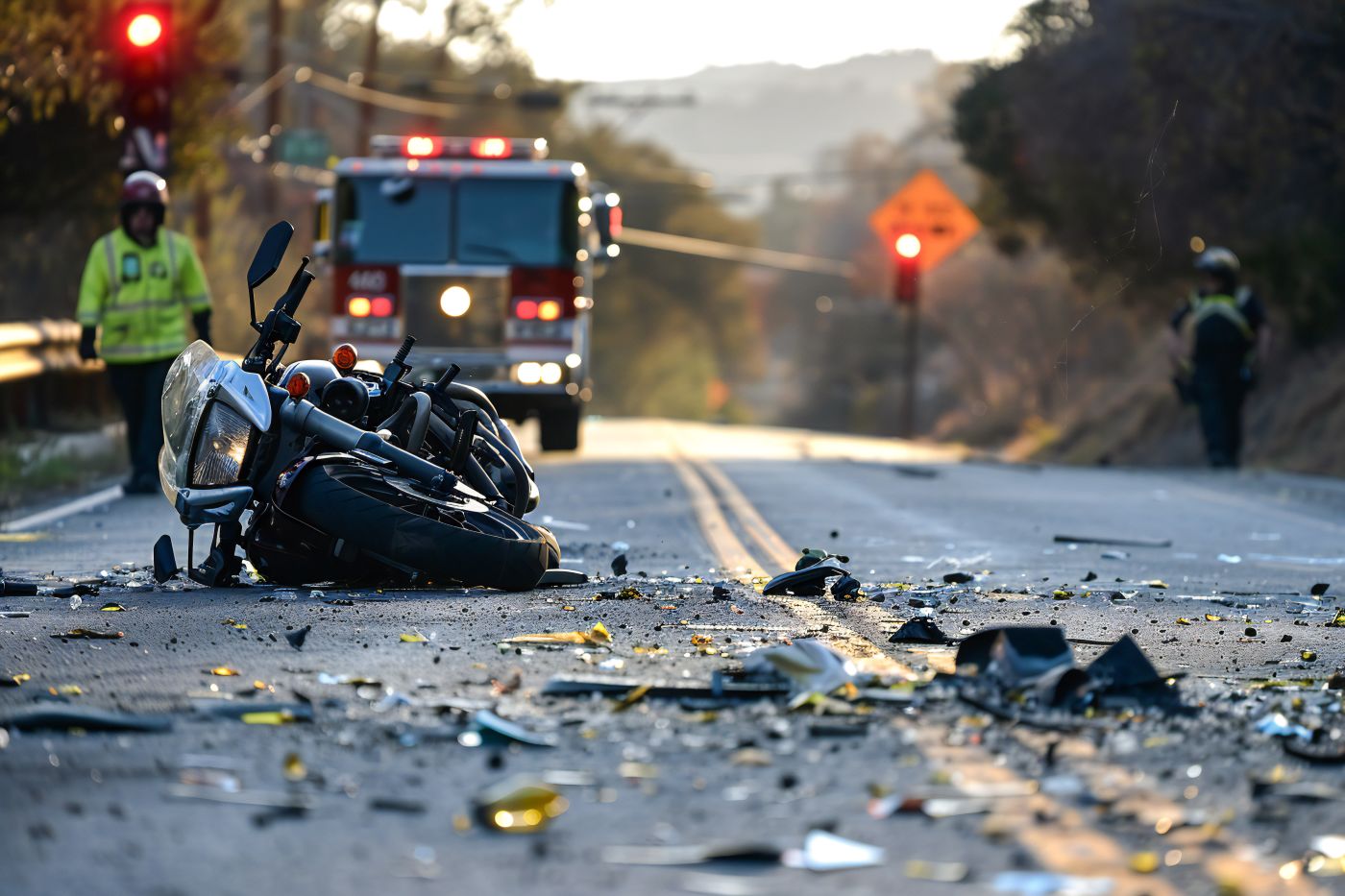
Alabama Motorcycle Laws and How They Can Affect Your Personal Injury Claim
Motorcycle riding in Alabama is not only a time to feel the rush of fresh air and an open road but also serves as a crucial mode of transportation for many residents.
With scenic routes, mild weather, and a vibrant motorcycle culture, riding is easily undeniable. However, with this freedom comes legal regulations and—during devastating moments—accidents.
During these pressing matters, it's important to understand your rights—whether you're operating a car or motorcycle. At Whit A. Thomas, Attorney at Law, we have the resources to help you through your personal injury claim after an accident. To discuss your case, schedule a free consultation today.
Helmet Laws in Alabama
Alabama law lays out specific requirements regarding motorcycle helmets, which play a vital role in rider safety:
Helmet requirement: All motorcycle riders under the age of 16 are mandated to wear a helmet. Riders aged 16 and over must wear a helmet unless they hold a valid motorcycle license. This distinction highlights the importance of obtaining proper licensing, as it can affect safety regulations.
Helmet compliance: Helmets must conform to safety standards set forth by the U.S. Department of Transportation (DOT), ensuring they provide adequate protection. Riders should look for the DOT sticker when purchasing helmets to guarantee compliance.
Potential liability: Failing to wear a helmet can significantly influence liability in the event of an accident. Insurance companies may argue that not wearing a helmet contributed to the severity of any injuries sustained, potentially reducing the compensation available to the injured party.
Licensing Requirements
To legally operate a motorcycle in Alabama, riders must navigate specific licensing requirements that ensure they possess the necessary skills and knowledge:
Motorcycle endorsement: To obtain a Class M endorsement on their driver’s license, riders must pass both a knowledge test and a skills test specifically designed for motorcycle operation. This ensures that only qualified individuals are allowed on the road, promoting safety for all.
Age restrictions: Riders under 18 are generally required to complete a DMV-approved motorcycle safety course to qualify for a motorcycle license. This course not only teaches essential riding skills but also emphasizes safe riding practices and the importance of awareness on the road.
Insurance Requirements
Alabama law mandates that all motorcycle operators maintain specific insurance coverage, which can have critical implications for personal injury claims:
Liability insurance: All riders must carry minimum liability insurance coverage. This coverage provides financial protection against claims for bodily injury or property damage resulting from an accident. It is crucial for riders to review their policy limits to ensure they have adequate coverage.
Uninsured/underinsured motorist coverage: Although it’s not legally required, purchasing uninsured or underinsured motorist coverage is highly recommended. This protection can be invaluable if involved in an accident with a driver who lacks sufficient insurance, ensuring that riders have recourse for their injuries and damages.
The Impact of Lane Splitting
In Alabama, lane splitting—riding between lanes of slow or stopped traffic—is illegal. Riders should be aware that engaging in this practice could not only lead to legal penalties but also significantly influence liability in the event of an accident. If a rider is lane splitting and gets involved in a crash, it could be argued that they were acting recklessly, which might affect their ability to recover damages.
Contributory Negligence in Personal Injury Claims
Alabama operates under a strict contributory negligence rule, which can greatly impact personal injury claims:
Zero recovery: If a rider is found to be even 1% at fault in an accident, they may be completely barred from recovering any damages. This highlights the importance of thorough documentation and evidence gathering following an accident.
Evidence compilation: It is crucial for riders to gather vital evidence to support their claim. This includes obtaining police reports, collecting witness testimonies, taking photographs of the accident scene, and documenting any visible injuries. The more evidence a rider has, the stronger their claim will be in demonstrating that they were not at fault.
Safe Riding Practices
To reduce the risk of accidents and enhance safety, all motorcycle riders should adhere to the following essential practices:
Obey traffic laws: Strictly following speed limits and obeying traffic signals can dramatically lower the likelihood of accidents. Being mindful of other road users and anticipating their actions is also critical.
Use proper gear: Wearing the right protective gear is vital. This includes helmets, jackets made from abrasion-resistant materials, gloves, and sturdy boots. Proper gear not only enhances safety but also promotes comfort during rides.
Maintenance checks: Regularly inspecting a motorcycle for mechanical issues, such as checking tire pressure, brakes, and lights, can prevent breakdowns that may lead to accidents. Keeping up with routine maintenance can significantly improve a rider’s safety on the road.
Dependable Legal Guidance
Understanding Alabama’s motorcycle laws is essential for riders not only to avoid potential legal complications but also to safeguard their rights in the unfortunate event of an accident. Navigating the complexities of personal injury claims can be daunting, especially given Alabama's at-fault insurance system and stringent contributory negligence laws.
At Whit A. Thomas, Attorney at Law, we are dedicated to helping motorcycle riders and those behind the vehicle of a car comprehend these laws and protect their rights. If you’ve been involved in a motorcycle accident and require legal assistance, contact us for a free consultation today. Our team is here to help you through the legal landscape and advocate for your rights every step of the way.